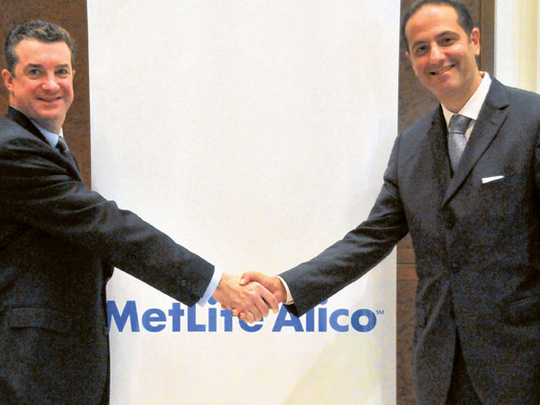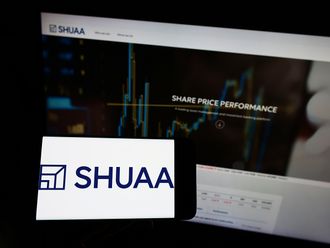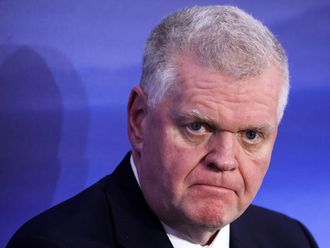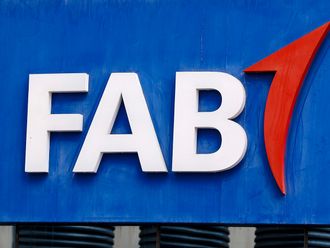
Dubai: The Middle East's insurance industry has never been one for dramatic changes.
Instead, it's one industry where any departure from the norm has been incremental and where growth rates resolutely confine themselves to a certain range each year.
Similarly, there are no major shifts in the fortunes of the leading players. In short, consistency and conformity rule.
This is one reason why the US insurance giant MetLife's acquisition of Alico from AIG — finalised last week — could dramatically alter the region's insurance industry landscape. Alico has built up a solid product and distribution network in these markets over decades and now, with the financial empowerment that being part of MetLife brings, it can look at opportunities that may not have existed before.
In conversation with Gulf News, William Mullaney, president of US business at MetLife, and Michel Khalaf, CEO of Middle East, Africa and South Asia at Metllife Alico, provide an insight into what's in store.
Gulf News: At the ground level, especially for Alico's vast agent and distribution network, what will be the immediate impact from the MetLife takeover? Were there concerns that had to be addressed?
Michel Khalaf: Yes, there will always be some concerns, which is why it was important to communicate what this transaction would be about. On March 8, when the announcement was first made about MetLife's plans, a town hall meeting was called in Dubai. It was very important for us to communicate immediately to the employees, agents and distribution partners the significance. That generated a great deal of excitement.
But this is a region where no overlap existed between Alico and MetLife. Even in those regions where there was overlap, there was little. Everybody recognises this combination would create something much bigger and much more special.
This also gives us the certainty we would all like to have since the AIG crisis started. Becoming part of a true global powerhouse is highly motivational.
At the regional level, we increased the employee population in 2009 and again this year. For us to grow the business, we need to attract talent. That's the plan for next year as well.
But isn't that adding to an already substantial network?
Michel Khalaf: If you look at our performance even during the crisis, it validates our strategy. We recognise that the level of insurance penetration is extremely low and one of the best ways to improve that is enhance our distribution capability.
So, whether it's adding to our agent workforce or by partnering with financial institutions, it was needed. Of course, some adjustments had to be made because of the crisis, but I can tell you that in the last 18 months or so we are very much back to investing in the business.
Obviously, the very fact that no overlap existed would have been a big plus where MetLife is concerned. But prior to the Alico deal, did MetLife ever consider a direct presence in the region?
William Mullaney: We had given some consideration from time to time. In the US, we have relationships with over 90 of the Fortune 100 companies. They have asked us whether we could offer our services to their employees in the Middle East.
But it's very difficult to get into a market like this on our own without making some kind of an acquisition. Alico has been here for many years and it would have been difficult for MetLife to replicate that. To come in and connect with Alico's regional network and pair it with MetLife's financial strength gives us an opportunity to invest in this region. This is a real growth opportunity for us.
What will all this mean for Alico's existing product line-up? And what of new products?
Michel Khalaf: We constantly evaluate our product offering recognising that as markets change needs change as well. We are just about now to launch a whole series of products. It doesn't mean all existing products are going to be taken off the shelf. In fact, most of them continue to be quite popular. We realise, especially now, with the combination of MetLife and Alico, we have a responsibility to innovate.
What of the branding strategy?
William Mullaney: For this particular region, it will be MetLife-Alico. We will look to see whether we have products in other parts of the world that may make sense in this part of the world. There's a whole series of new products that are being introduced now to the agents, about half a dozen of them. These are carefully thought out and built around the needs of the people. We are looking at the next six to eight weeks for their full introduction.
The products we are going to introduce now are products that are built for this region. They are reflective of clients' needs in this region.
If you try to build a single product and sell it in all the markets, you will probably find you will only meet the needs of very few clients. It's important for the local business to figure out what the local clients need and shape products around that.
Until now, Alico's products have invariably been longer term in their structuring, of over 10 years and more. In the present market, with all its uncertainties, can you still do that?
Michel Khalaf: In our new products, we offer much greater flexibility as far as the premium paying period is concerned. A major portion of the working population may prefer to make a commitment for a shorter duration, of three or five years. That's one area we are enhancing.
Clients are also telling us they wish to see products with some form of guarantees. We see this as an area of strength for us, a sort of return to our roots.
Obviously a low interest rate environment does present some challenges in terms of delivering this product.
We have managed to maintain discipline on the underwriting approach, including on our group insurance business. I don't see us moving into a mono-line of business — there are good opportunities across several lines.
Some of the products we now have are focused on education. It's an important need, and we want to position ourselves as the preferred provider of education-related products in the markets we serve.
Wouldn't offering guarantees only add to your cost?
William Mullaney: Understanding the value of guarantees is a worldwide issue for insurance companies. After the crisis, people really appreciate the value of guarantees that we bring with the products we offer.
The way we approach asset-liability management, the way we invest the proceeds we get out of the policies, is really reflective of the liability. We will set up an asset portfolio that will reflect the meeting of these guarantees.
Insurance companies have performed much better than banks have. That's really a function of how insurance companies approach investments — it starts with a liability, with understanding the guarantee you are providing and then building an asset portfolio that would allow the meeting of those guarantees.
When we buy assets, we do so expecting to hold them until maturity. The asset is invariably a reflection of what the liability is, and of the guarantee. In a low-interest environment, it affects how we price those guarantees.
How would you assess Alico's performance in the individual markets? Would you be adding new ones to the coverage area?
Michel Khalaf: In Saudi Arabia, we are in the process of setting up a joint venture under the new insurance laws. We are converting our presence into a insurance company, and already obtained the Royal Decree.
We will proceed to the IPO stage and thereafter the full licensing phase. It could take anywhere between nine to 12 months.
The UAE is the top market for Alico, and the Gulf is the single biggest contributor, followed by Lebanon and Bangladesh. Our regional coverage also extends to Egypt and Turkey, as well as Nepal and Pakistan.
MetLife does not have a presence in Africa apart from Egypt. We are always evaluating opportunities, but there are a lot of factors that go into the process.
As far MetLife is concerned, does the Alico acquisition take you nearly everywhere?
William Mullaney: The acquisition of Alico has led us to expand our global footprint. We believe, and others agree, the biggest growth opportunities going forward are in Asia. We have been in China for 10 years and continue to expand there.
The Middle East will be the fastest growing region for MetLife.
The US has just gone through a major election cycle. There is also the attendant fracas over healthcare reforms. But what does all this mean for an US insurer?
William Mullaney: We are not in the medical business in the US. The issue for us is to what extent the changes in medical care impact on the broader delivery of employee benefits.
We are a very large employee benefit provider in the US. I think the delivery of healthcare will change significantly over the next 10 years. The question that hasn't been answered yet is what role will employers continue to play in the delivery of healthcare benefits?
Today, most of the people get healthcare benefits through their jobs. It will be interesting to see whether that changes employers' attitude towards other benefits, such as life insurance, disability, dental and retirement planning. That's something we are watching very closely.
New products soon
The newly minted combination of MetLife and Alico intends to roll out a slew of new insurance products in the region over the coming weeks. In keeping with the changed market circumstances following the global financial crisis, some of these products would offer shorter premium payment terms for the insured and would also offer guarantees.
The new products will carry the combined "MetLife Alico" branding after analysis of the facts confirmed this would be the best option. But none of this will impact on any of Alico's existing policies, and there will also be no changes in the pricing these clients receive.
It was on November 1 that the formal completion of MetLife's takeover of Alico from AIG through a $16.2 billion deal was announced in the US.
Consideration paid by MetLife to AIG for the acquisition of Alico consisted of $7.2 billion in cash after adjustments and $9 billion in MetLife equity and other securities. The securities portion consisted of 78.2 million shares of MetLife common stock, 6.9 million shares of contingent convertible preferred stock and 40 million equity units.
The values of the common and preferred stock are based on the closing price of MetLife's common stock on October 29, the trading date prior to closing.
While MetLife never had a presence in the Middle East, it is now positioning itself to use Alico's entrenched presence in these markets to full effect. "The Middle East will be one of the fastest growing regions for us," said William Mullaney, president of US business at MetLife.
"We will look to see whether we have products in other parts of the world that may make sense in this part of the world. The products we are going to introduce now are products that are built for this region. They are reflective of clients' needs in this region."











